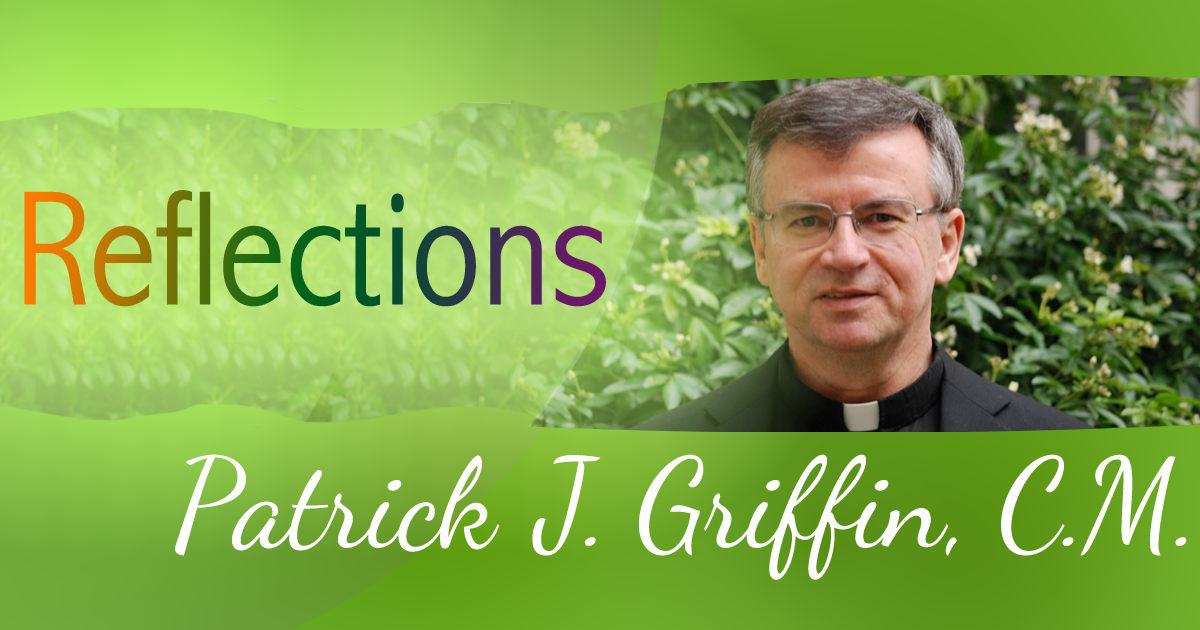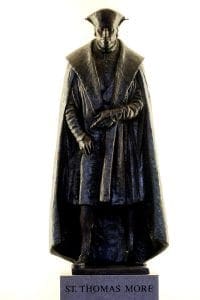
A Vincentian View
Fr. Patrick J. Griffin, CM
“More”
At the center of the Queens’ campus of St. John’s University stands the eleven year old Church of St. Thomas More. The majority of the funding for the Church came from an alumnus of the Law School, and he also offered this name. One can understand why someone in the Law School would find More an attractive model.
Last Wednesday (June 22) was the memorial of St. Thomas. We had a special mass at which the Law School faculty was invited to be in particular attendance. I also was present, though not the main celebrant.
 I have thought of St. Thomas More with some frequency in this election year. He has a lot to teach us about governance and principles and reasoned discussion. Let me offer a few thoughts around him and our civic responsibilities. I hope not to seem to be favoring one side of the aisle over the other. My thoughts apply to all who seek and hold public office.
I have thought of St. Thomas More with some frequency in this election year. He has a lot to teach us about governance and principles and reasoned discussion. Let me offer a few thoughts around him and our civic responsibilities. I hope not to seem to be favoring one side of the aisle over the other. My thoughts apply to all who seek and hold public office.
When St. Thomas was confronted with the situation which would ultimately lead to his execution, he chose not to enter into a vituperative debate which assaulted persons, but he dealt with issues in an intelligent manner. He made distinctions and invited discussion which dealt with the important points. One might also note that sometimes he chose silence rather than debate. One would like to think that he was listening and not just shutting his ears.
Perhaps the line which is most characteristically associated with St. Thomas was the way in which he described himself: “I am the King’s good servant – but God’s first.” The strong responsibility which he had to his country and to its ruler was clearly acknowledged by him and it consumed much of his life. He was indeed “the King’s good servant” and would have continued to be such up to the point where it clearly came into opposition with the teachings of his faith. Then, he had no other choice but to keep his God in first place. Being a believer was not simply an election necessity for him, but the basis for decision-making and the value for which he would surrender his life. It provided the vocabulary for his thinking.
Finally, if I were to select only one word which described St. Thomas More in my mind, it would be “integrity.” The other elements above certainly suggest this quality, but it also stands alone. It involves consistency and honesty and solidity. The person with integrity is not moved by polls or demographics or special interests. “Party unity” does not determine or change one’s positions. It does not seem possible to think of More being talked around to a stance in which he did not believe for the sake of a majority.
St. Thomas was not perfect, but he does hold out to us some important values in this election cycle. To the extent that we can demand these of our elected officials, we make them better women and men who serve the public good. Of that kind of service, we always need a little More.







Very good reflection. Congrats dear Fr Pat